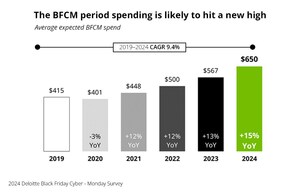Corporate Energy Efficiency is a Tale of Bottom Line Versus Brand Image: Deloitte
Interactive report allows businesses to benchmark their own energy-reduction progress
WASHINGTON, July 30, 2012 /PRNewswire/ -- Improving energy efficiency at America's businesses is as important to brand building as it is to growing the bottom line, according to a new Deloitte report.
The study, "reSources 2012," shows that while 85 percent of companies claim that electricity cost reductions are essential to staying financially competitive, nearly an equal majority (81 percent) believe they are critical to brand building. As a matter of fact, more than three-quarters of the organizations surveyed say they are actively promoting their energy efficiency efforts to their customers.
"Corporate America is coming to a clear consensus: Energy efficiency is an important competitive advantage," said Greg Aliff, vice chairman, Deloitte LLP and the report's co-author. "It is no longer just the purview of plant operations or building management. Senior leaders are beginning to view it as a strategic business driver."
Businesses Encouraged to Plot Their Progress
As part of the ongoing research, businesses can go to www.deloitte.com/us/resources and measure their own energy-efficiency efforts against those surveyed for the "reSources 2012" report. Through an online interface, companies can answer several of the study's questions and then receive a short report comparing their responses against those who participated in the research. The online poll is designed to be a solid predictor of actual achievement against energy management goals – especially when it comes to capital investment, performance measurement and management, and reporting and disclosure.
"Given the capital expenditures required to increase energy efficiency, companies need to have a good sense of where they are at the outset of their energy efficiency efforts," said Marlene Motyka, Deloitte's U.S. alternative energy leader. "While 90 percent of companies have set energy management goals, there is wide variance in their evolution and sophistication."
Longer Payback Period and Lower Returns
Survey respondents say they have achieved close to 60 percent of their targeted reduction levels. However, much of this progress is the result of initiatives that are easy to implement, such as installing more efficient light bulbs. As companies move on to more sophisticated stages of energy efficiency – requiring larger investments – capital funding is the number one barrier to future progress, followed by length of payback period.
Further, with prices relatively low, many potential energy management projects simply will not reach required payback periods and returns. "Ironically," said Motyka, "sustained low natural gas prices may be making it more challenging to reach cost-reduction targets."
Technology is another challenge. Six-in-ten businesses agree that today's smart technology is not effective for their own unique circumstances, and an equal number believe that it is inadequate to help them achieve energy cost reduction goals. Additionally, a significant change in human behavior is required for efficient energy management. Any potential benefits gained from implementing a sophisticated smart technology system may well be negated by counterproductive employee actions.
On-Site Generation Growing
One area of particular traction for more sophisticated levels of energy efficiency is on-site generation. Thirty-five percent of companies surveyed currently generate some of their own electricity supply through renewable sources or cogeneration, and 17 percent report they have plans for future on-site generation. This is up from 21 percent and six percent in 2011, respectively. At the same time, participation in green energy programs offered by electric companies has risen to 37 percent from 30 percent, as awareness and availability of programs have expanded.
The encouraging news, according to the report, is that energy management is gaining momentum, inspite of a low-energy-cost environment, driven by both financial and brand-image incentives. As such, developing and executing effective energy management strategies and programs may, in the long run, be as much about staying in business as it is about having competitive advantage. With this growing trend, business, customers and the environment all win.
The "reSources 2012" report is based on interviews conducted by Harrison Group, a strategy and market research firm, on Deloitte's behalf in February and March 2012. More than 600 senior executives responsible for energy management practices at companies with more than 250 employees participated in the study.
The full study is available at www.deloitte.com/us/resources.
About the Deloitte Center for Energy Solutions
The Deloitte Center for Energy Solutions provides a forum for innovation, thought leadership, groundbreaking research and industry collaboration to help companies solve the most complex energy challenges. Through the Center, Deloitte's Energy & Resources group leads the debate on critical topics on the minds of executives – from the impact of legislative and regulatory policy, to operational efficiency, to sustainable and profitable growth. The Center provides comprehensive solutions through a global network of specialists and thought leaders. With locations in Houston and Washington, D.C., the Center offers interaction through seminars, roundtables and other forms of engagement where established and growing companies can come together to learn, discuss and debate.
As used in this document, "Deloitte" means Deloitte LLP and its subsidiaries. Please see www.deloitte.com/us/about for a detailed description of the legal structure of Deloitte LLP and its subsidiaries. Certain services may not be available to attest clients under the rules and regulations of public accounting.
SOURCE Deloitte
WANT YOUR COMPANY'S NEWS FEATURED ON PRNEWSWIRE.COM?
Newsrooms &
Influencers
Digital Media
Outlets
Journalists
Opted In






Share this article